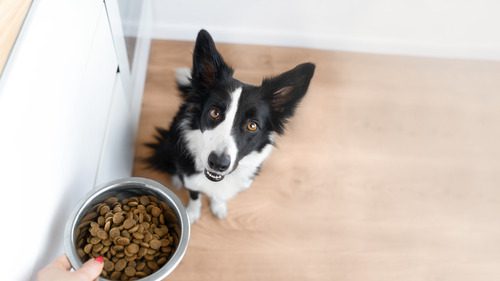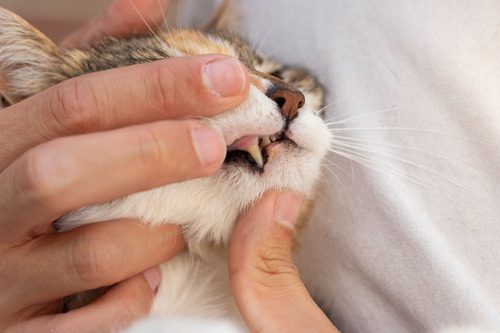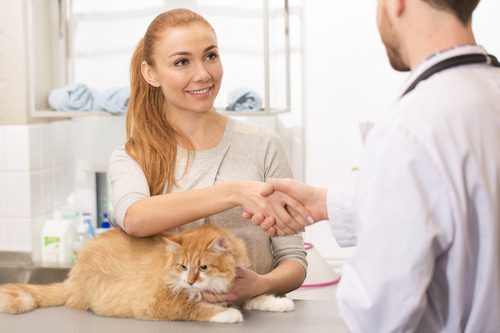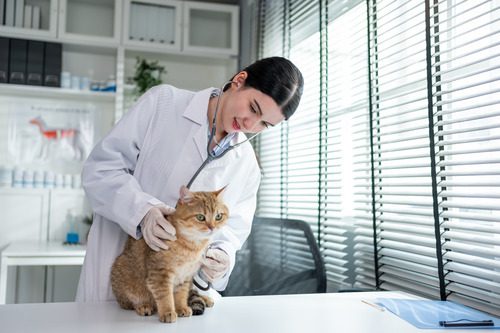Why Does My Dog Chatter Its Teeth?
If your dog has ever started chattering its teeth unexpectedly, you’re not alone in wondering what’s going on. This behavior can be puzzling, especially when it seems to happen out of nowhere. In some cases, it might look funny but in others, it may signal an underlying issue that needs attention. Whether your dog is excited, stressed, or possibly experiencing discomfort, there are a range of potential reasons for this odd habit. This blog explores the most common causes of dog teeth chattering, when it’s considered normal, and when it’s time to schedule a visit to your veterinarian at Cornerstone Veterinary Hospital of Clifton Park. If you notice this behavior regularly, it’s a good idea to find out what your dog may be trying to tell you.

What Is Dog Teeth Chattering?
Dog teeth chattering refers to a rapid movement of the jaw that causes the teeth to knock together repeatedly. Some dogs chatter their teeth for just a few seconds, while others may do it more frequently or for longer periods. The motion can resemble shivering or the kind of jaw movement dogs sometimes make when they’re sniffing something intensely. In many cases, dog teeth chattering is harmless and temporary. However, if it becomes a recurring behavior or is accompanied by other symptoms like drooling, pawing at the mouth, or behavioral changes, it could indicate something more serious. Recognizing the context and patterns of this behavior can help your veterinarian determine the possible cause.
Emotional Causes of Dog Teeth Chattering
Dogs experience a wide range of emotions, and sometimes those feelings come out in unexpected ways including chattering teeth.
Excitement or Anticipation
Some dogs chatter their teeth when they’re excited, especially if they’re anticipating something they enjoy, such as a favorite toy, a treat, or a walk. This is often seen in high-energy breeds and younger dogs. In this case, dog teeth chattering is similar to tail wagging or jumping in place. It’s just another way for them to release pent-up excitement.
Anxiety or Stress
On the flip side, dogs may also chatter their teeth when they feel anxious or overwhelmed. Loud noises, unfamiliar environments, and separation from their family members can all trigger this reaction. Stress-related chattering is usually accompanied by other body language signs such as pinned ears, tucked tail, and lip licking. If your dog’s teeth chattering occurs during storms, trips to the vet, or when left alone, anxiety might be the culprit.
Physical or Medical Causes of Dog Teeth Chattering
When dog teeth chattering becomes a consistent behavior, or if it occurs alongside other symptoms, it may be related to an underlying health issue.
Dental Problems
Dental issues are one of the most common causes of dog teeth chattering. Conditions such as gingivitis, tooth abscesses, broken teeth, or oral infections can all lead to discomfort in the mouth, which may prompt your dog to chatter. In these cases, chattering could be your dog’s response to pain or pressure. Other signs of dental trouble include:
- Bad breath
- Drooling
- Reluctance to eat
- Chewing on one side of the mouth
- Pawing at the face
Routine dental exams and cleanings help reduce the risk of these problems. If your dog is due for a dental check-up, call Cornerstone Veterinary Hospital of Clifton Park at (518) 383-6254 to schedule an appointment.
Neurological Issues
In rarer cases, dog teeth chattering could point to a neurological issue. Seizure activity, tremors, or nerve damage may cause the jaw to move involuntarily. These instances are typically more serious and may involve additional symptoms such as:
- Muscle twitching
- Loss of coordination
- Behavioral changes
- Disorientation
If your dog’s teeth chattering appears to be involuntary or occurs along with other neurological signs, your veterinarian may recommend diagnostic tests to determine the cause.
Behavioral Habit or Learned Response
Some dogs develop habits over time based on repetition or learned behavior. Dog teeth chattering can become a patterned response to specific triggers or routines.
When Is It a Learned Behavior?
If your dog starts chattering its teeth at the same time each day or during certain activities (like mealtime or playtime), it may have formed an association between the event and the behavior. This often happens when dogs receive attention for chattering, whether it’s in the form of praise, concern, or a treat. While not harmful in itself, it’s still important to rule out medical causes before attributing the behavior to habit.
Should I Be Concerned About Dog Teeth Chattering?
Occasional chattering that happens during sniffing, play, or moments of excitement typically doesn’t require a vet visit. However, if your dog shows other signs of discomfort or the chattering becomes frequent, it’s worth bringing up during your next veterinary appointment. Here are some situations where dog teeth chattering should be evaluated:
- Persistent or frequent chattering
- Signs of oral pain (drooling, pawing at the face)
- Changes in appetite or chewing habits
- Chattering paired with behavior changes
- Involuntary jaw movement
Your veterinarian may examine your dog’s mouth, take X-rays, or recommend bloodwork or neurological evaluations depending on what they find. Addressing any underlying health issues early can make a big difference in your dog’s comfort and overall quality of life.
Why You Shouldn’t Ignore the Signs
While dog teeth chattering may seem like a minor quirk, it often reveals more about your pet’s emotional state or physical health than you might expect. Chattering could be your dog’s way of asking for help or it might just be a funny little habit. Either way, paying attention to the context helps you decide whether it’s time to call your vet or simply enjoy your pet’s unique personality. If you live in or around Clifton Park and notice your dog chattering its teeth more than usual, the team at Cornerstone Veterinary Hospital can help. Call (518) 383-6254 or request an appointment online to have your dog examined by a caring and experienced veterinary team.
Recent Posts
My Cat Lost a Fang Tooth: What Do I Do?
My Cat Lost a Fang Tooth: What Do I Do? It’s always a little jarring to discover…
FHO Surgery in Cats
FHO Surgery in Cats When a cat experiences hip pain that limits movement and quality of life,…
Can Cats Get Parvo?
Can Cats Get Parvo? Parvo is a word that strikes fear into the hearts of many dog…
About Us
Originally opened as Animal Care Hospital by Dr. Mark Johnston in 1989, the hospital became Cornerstone Veterinary Hospital in 2015 when it was purchased by Drs. Alan and Lisa Knott. The name 'Cornerstone' holds a special place in their hearts, representing not only their Christian faith but also their commitment to being the cornerstone of the community in which they practice. As a family-owned and operated practice, every pet is treated as part of the family, ensuring they receive the highest standard of care. The team at Cornerstone Veterinary Hospital is dedicated to building lasting relationships with clients and their beloved pets, striving to be the cornerstone of the community in which they practice.



